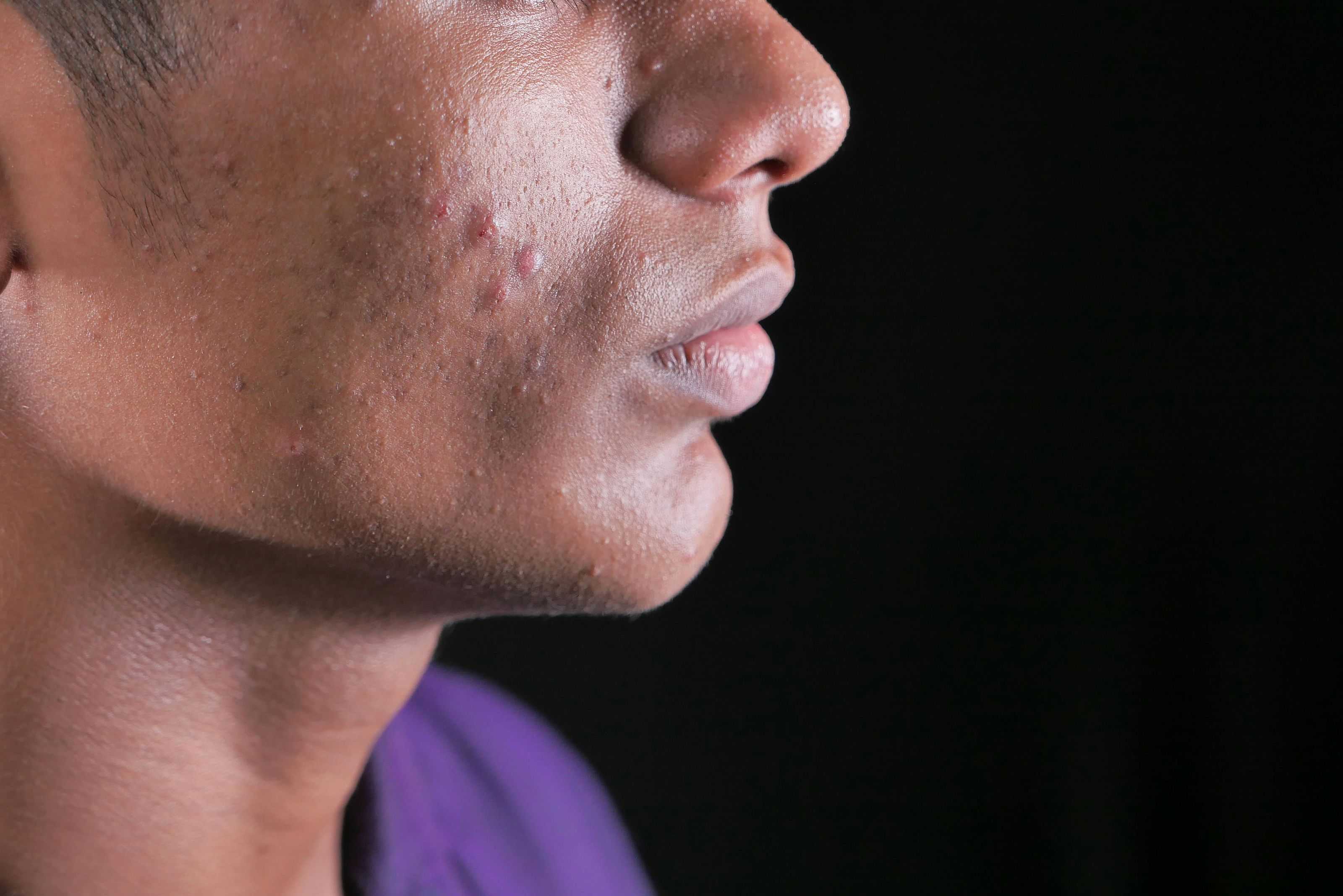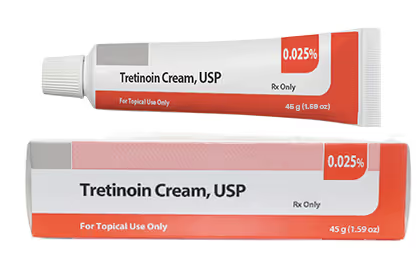Key Takeaways
- Chest Acne Causes and Concerns: Acne isn’t limited to the face; the chest is also commonly affected. Factors such as dietary choices, hormonal imbalances, and external irritants, including tight clothing and sweating, can lead to breakouts. This not only causes physical discomfort but can also impact one’s wardrobe choices and self-confidence.
- Identifying and Understanding Chest Acne: It’s crucial to differentiate between acne and other skin conditions such as allergies, fungal infections, and heat rashes. Chest acne comes in various forms, from cysts and papules to open and closed comedones (blackheads and whiteheads, respectively).
- Effective Treatment and Management: A multifaceted approach is vital to tackle chest acne. This includes incorporating products with active ingredients like AHAs or glycolic acids, maintaining a consistent skincare routine, and understanding the significance of exfoliation. However, seeking professional advice from a dermatologist is recommended in persistent or severe cases. Register here to consult with a qualified dermatologist online.
Are you battling with Chest Acne? You’re not alone. Many individuals across the globe experience this common skin concern. While acne is typically associated with the face, the reality is that it can erupt anywhere on the body, and the chest is a prime target. Factors like sweating, tight clothing, and even our diets can be culprits behind those pesky breakouts on our chests.
Why is chest acne a concern? Well, for starters, it can be uncomfortable. Moreover, it can also deter one from wearing certain types of clothing, especially during warmer seasons or special occasions. But the good news is that there are effective solutions available. From understanding the root causes of chest acne to discovering top remedies, there’s a wealth of knowledge waiting for you.
We’ve compiled a comprehensive guide on managing and relieving chest acne, ensuring you feel confident, no matter the attire. Whether understanding the importance of exfoliation or knowing when to see a dermatologist, we’ve got you covered. Stay with us and read to explore more about chest acne solutions.
What Causes Chest (or Back) Acne?

Diet:
Chest acne can often be linked to our dietary choices. Consumption of high-glycemic foods, such as white bread or sugary drinks, can lead to increased insulin levels, which might trigger acne.
Similarly, an excessive intake of dairy products has been associated with breakouts for some individuals. Remembering the importance of a balanced diet is critical. Lacking essential nutrients can also contribute to acne.
Dehydration affects the skin’s ability to heal and regenerate, and lastly, continuously indulging in junk and oily food can worsen the skin condition, making it prone to breakouts.
Related: The Best Vitamins For Dry Skin
Hormonal Imbalance
Our hormones play a significant role in the health and appearance of our skin. Factors such as menstrual cycle fluctuations can contribute to women’s chest acne. Conditions like Polycystic ovary syndrome (PCOS), which come with hormonal imbalances, can also be culprits.
The hormonal changes during puberty are another common cause, making teenagers a prominent group suffering from this issue. The use of certain medications which affect hormone levels can also induce acne.
And, not to forget, stress and poor adrenal health can indirectly influence hormone levels and, thus, acne.
Make-Up
Yes, that perfect cover-up might be doing more harm than good. Using comedogenic products that clog the pores can lead to breakouts. It’s essential to ensure the removal of make-up before sleep to let the skin breathe.
Also, using old or expired products can introduce bacteria to the skin, and neglecting to clean make-up brushes regularly can have a similar effect. Always patch-test new products to ensure they don’t irritate the skin or cause breakouts.
Excessive Sweating
While sweating is a natural body process, it can contribute to chest acne if not managed. Not showering after workouts can allow sweat to clog the pores.
Living in humid climates without proper skincare can be a challenge. Some people have overactive sweat glands, which makes them prone to breakouts. Wearing non-breathable fabrics can trap sweat against the skin. Certain medical conditions that cause excessive sweating can indirectly lead to acne.
Overwashing
While keeping the skin clean is vital, overdoing can be harmful. Stripping the skin of natural oils by washing too often can cause the body to produce even more oil, which can lead to breakouts. Using harsh cleansers can irritate and dry the skin, leading to increased acne.
Frequent scrubbing can damage the skin and worsen acne, and it’s a myth that using hot water can “open up” pores; in fact, using hot water for showers can strip the skin of its natural oils.
Related: Why Is My Skin So Dry Even When I Moisturize?
Tight Clothing
Clothing can be a sneaky contributor to chest acne. Non-breathable fabrics can trap sweat and oil against the skin. Constant friction on the skin can irritate it and lead to breakouts. Wearing damp clothing or not changing clothes, especially after a workout, can allow bacteria to flourish. All these factors create an environment for acne to develop.
Is It Definitely Acne or Something Else?
Allergies:
Sometimes, what appears as acne could be an allergic reaction to products or fabrics. These usually present as itchy, red patches on the skin.
Fungal Infections:
Yeast on the skin can sometimes cause breakouts that resemble acne. However, they don’t respond to typical acne treatments and require antifungal interventions.
Heat Rashes:
These tiny, itchy bumps can be aggravated by sweating and humid weather. They are not acne but can feel and look irritating.
Keratosis Pilaris:
This condition causes small, rough bumps on the skin primarily on the back of the arms. They are not painful or itchy but can be mistaken for acne due to their appearance.
Other Skin Conditions:
Other dermatological issues like eczema or psoriasis can sometimes be confused with acne, given the red, inflamed appearance of the skin.
Types of Chest Acne
Cysts:
These are deep, painful, pus-filled lesions that lie beneath the skin. They can cause scarring if not treated properly.
Papules:
These are small, raised, red bumps on the skin, often caused by inflamed hair follicles.
Pustules:
These are yellowish, pus-filled lesions with a red base visible on the surface, often mistaken for zits.
Open Comedones (Blackheads):
As the name suggests, these are clogged pores open to the surface, presenting a black appearance due to oxidation.
Closed Comedones (Whiteheads):
Opposite to blackheads, these clogged pores are closed from the surface, appearing as small, white, or flesh-colored bumps on the skin.
Quality Care at Your Fingertips. Why pay more for dermatological care when Honeydew offers the best at an affordable rate? Gain access to seasoned dermatologists and our signature best-practice medications for just $25/month on our annual plan. See our pricing and make the smart choice today.
How to Get Rid of Chest Acne: Tips and Remedies

Use AHAs or Glycolic Acids:
Alpha Hydroxy Acids (AHAs) or Glycolic Acids are natural exfoliations that help slough off dead skin cells. Their use promotes cell turnover, which encourages new skin cell growth. One of their main benefits is the ability to unclog pores, effectively preventing acne formation.
As a bonus, they can brighten the skin, reducing acne scars and discoloration. These acids can offer a softer, even skin surface for those aiming for a more refined skin texture.
Cleanse Daily:
A daily cleansing ritual can work wonders in keeping chest acne at bay. By removing dirt and oil, it ensures that there’s no buildup in the pores. It’s not just about cleaning, though; it’s about maintaining a balanced skin pH, which keeps the skin fresh.
Opting for non-comedogenic products is crucial as these ensure the pores aren’t clogged. Establishing a routine in the morning and at night is essential for keeping the skin clear. Lastly, it’s always advisable to be gentle on the skin, avoiding harsh cleansers that can lead to irritation.
Wash Away the Sweat:
Sweat, if left unwashed, can be a precursor to acne. An immediate post-exercise wash can prevent sweat and dirt from clogging the pores. When showering, use lukewarm water; it can aid in gentle cleansing.
For those looking for targeted solutions, shower gels with salicylic acid can directly tackle acne. After the shower, it’s advisable to pat the skin dry to avoid irritation from rubbing, and always wear clean clothes to prevent reintroducing dirt and sweat.
Use Anti-Bacterial Soap:
Anti-bacterial soaps can be an effective solution as they target and kill the acne-causing bacteria on the skin. However, avoiding overusing these soaps is essential to prevent the skin from becoming overly dry. Checking for skin-safe ingredients ensures no further irritation occurs when choosing a soap. While using the soap, it’s a good practice to focus on acne-prone zones and rinse thoroughly afterward, ensuring no soap residue remains on the skin.
Related: Doxycycline For Acne: What You Need To Know
Avoid a High-Glycemic Diet:
Diet plays an integral role in skin health. Limiting sugar intake can drastically reduce potential acne triggers. Incorporating whole grains into one’s diet can help stabilize blood sugar levels. Additionally, consuming leafy greens ensures the skin gets essential nutrients.
Staying hydrated is also key, as it aids in flushing out toxins from the body. On the other hand, reducing the consumption of dairy and processed foods can help, as these can be potential acne-causing culprits.
Exfoliate:
Exfoliation is a skincare step that can’t be overlooked when battling chest acne. It helps remove dead skin cells, preventing them from clogging the pores. When choosing an exfoliant, opt for something gentle to avoid skin irritations. For the best results, establish a routine, ideally 1-2 times a week. After exfoliating, following up with a moisturizer ensures the skin remains hydrated. Over-exfoliating can cause more harm than good, so moderation is crucial.
See a Dermatologist:
If home remedies and over-the-counter products don’t do the trick, it might be time to see a dermatologist. They offer professional advice and can provide a tailored treatment plan for your specific skin type and concerns.
For more severe cases of acne, prescription treatments might be necessary. Regular check-ups allow you to monitor the progress of your treatments. Dermatologists can also guide skincare products and can help address underlying causes like hormonal imbalances or allergies.
Discover Affordable Skincare with Honeydew. Ready to experience quality dermatological care without breaking the bank? With Honeydew, you can consult experienced dermatologists for as low as $25/month when you opt for an annual plan. Dive into our world of best-practice medications and top-tier treatment plans. Check out our unbeatable pricing now.
Be Proactive and Consistent
Chest acne can be a distressing concern, affecting your self-confidence and comfort. However, as highlighted throughout this guide, numerous effective strategies and treatments are available to address this issue. From adopting a tailored skincare routine with ingredients like AHAs and glycolic acids to making lifestyle changes such as wearing breathable fabrics and monitoring one’s diet, tackling chest acne requires a multifaceted approach.
Knowledge is power, and understanding the underlying causes, whether hormonal imbalances, excessive sweating, or dietary triggers, can significantly aid in preventing and treating chest acne. Moreover, differentiating between acne and other skin conditions ensures you’re treating the issue and not mistaking it for something else.
While the tips and remedies mentioned can provide relief, it’s essential to remember that everyone’s skin is unique. What works wonders for one person might not be as effective for another. Therefore, personalized guidance from a professional can often be invaluable.
Don’t face it alone if you’re struggling with chest acne or any other skin concern.
Seek expertise and tailored advice. Register now to talk to a dermatologist online and embark on your journey towards clearer, healthier skin. Your skin deserves the best, and with the right help, a blemish-free chest is within reach.























